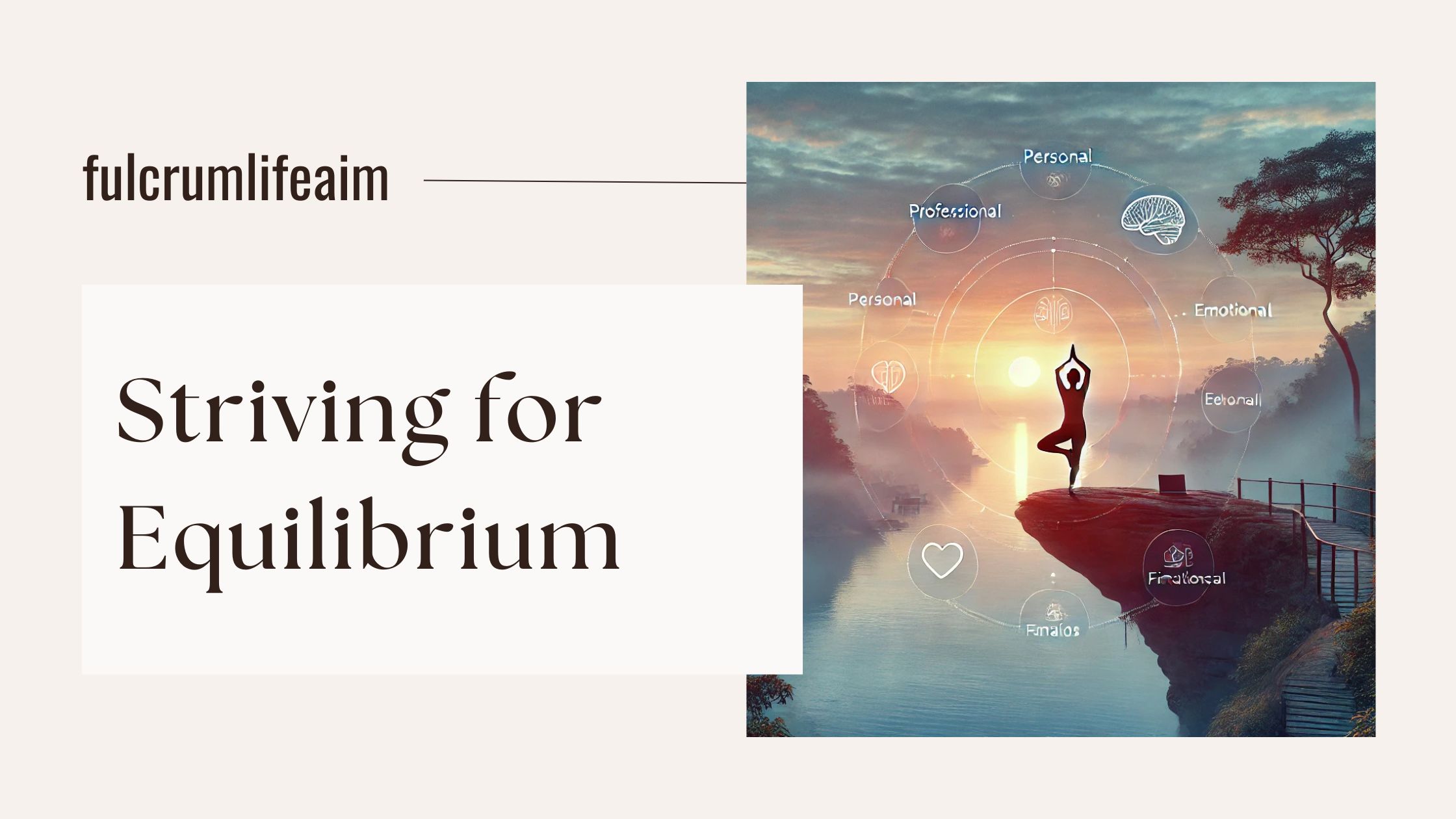Introduction
In the relentless pace of modern existence, the quest for balance often feels elusive. Yet, achieving equilibrium across all facets of life—be it professional, personal, emotional, or financial—is essential for genuine fulfillment.
Intentional living, the practice of making deliberate choices aligned with one’s core values, serves as a guiding principle in this pursuit. As the Bhagavad Gita advises, “One who has control over the mind is tranquil in heat and cold, in pleasure and pain, and in honor and dishonor” [Asana at Home Online Yoga Inc.]
Understanding Intentional Living
Intentional living involves consciously aligning daily actions with personal values and long-term objectives. It’s about making deliberate choices that reflect one’s true self, rather than succumbing to external pressures or habitual patterns. This mindful approach fosters a life of purpose and clarity, enabling individuals to focus on what truly matters [BALANCE THROUGH SIMPLICITY].
The Philosophy of Equilibrium
Equilibrium signifies a state of balance where various elements coexist harmoniously. In life, this translates to managing different responsibilities and desires without allowing any single aspect to dominate. The Bhagavad Gita emphasizes the importance of balance, teaching that inner peace arises from equanimity in all situations [Asana at Home Online Yoga Inc.].
Strategies for Achieving Balance
- Self-Reflection and Awareness: Begin by introspecting to understand your core values, strengths, and areas needing improvement. Regular self-reflection fosters self-awareness, guiding intentional decisions that align with your true self [Lora de Vries].
- Setting Clear Priorities: Identify and prioritize aspects of life that hold the most significance. This clarity aids in allocating time and resources effectively, ensuring that essential areas receive due attention [Imperfect Life Balance].
- Mindful Decision-Making: Make conscious choices that resonate with your values and long-term goals. Avoid decisions driven by impulse or societal expectations, focusing instead on what truly matters to you [Becoming Minimalist].
- Establishing Boundaries: Set clear boundaries to protect your time and energy. This practice prevents burnout and ensures a healthy balance between various life domains [Food & Wine].
- Embracing Flexibility: Recognize that life is dynamic, and flexibility is essential. Adaptability allows for adjustments in plans without compromising overall balance [Mudita Products].
- Practicing Self-Compassion: Treat yourself with kindness and understanding. Acknowledge that perfection is unattainable, and self-compassion promotes resilience and well-being [dailytelegraph].
- Cultivating Mindfulness: Engage in mindfulness practices to stay present and fully experience each moment. This awareness enhances decision-making and enriches daily life [Verywell Mind].
- Continuous Learning and Growth: Commit to lifelong learning and personal development. Embracing growth fosters adaptability and keeps life engaging and purposeful [Lora de Vries].
Applying Balance Across Life Domains
- Professional Life: Strive for a career that aligns with your values and passions. Set realistic goals, manage time effectively, and maintain boundaries to prevent work from overshadowing other life areas [Food & Wine].
- Personal Life: Nurture relationships and engage in activities that bring joy and fulfillment. Allocate quality time for family, friends, and hobbies that resonate with your interests [InStyle].
- Emotional Well-being: Practice emotional intelligence by acknowledging and processing emotions healthily. Seek support when needed and engage in activities that promote mental well-being [Verywell Mind].
- Financial Stability: Manage finances intentionally by budgeting, saving, and making informed spending decisions. Financial stability reduces stress and contributes to overall life balance [First United Bank].
Embracing the Journey
Achieving equilibrium through intentional living is an ongoing journey, not a destination. It requires continuous effort, reflection, and adjustment. By committing to this path, you cultivate a life of purpose, harmony, and fulfillment. As the Bhagavad Gita teaches, “A person can rise through the efforts of his own mind; or draw himself down in the same manner. Because each person is his own friend or enemy” [Asana at Home Online Yoga Inc.].
Conclusion
Intentional living and the pursuit of equilibrium are profound approaches to navigating life’s complexities. By embracing self-awareness, setting clear priorities, and making mindful choices, you create a balanced and purposeful life. Remember, the journey toward balance is personal and unique; honor your path, and strive to live in alignment with your true self.
